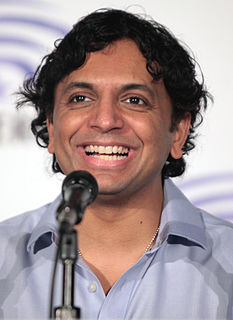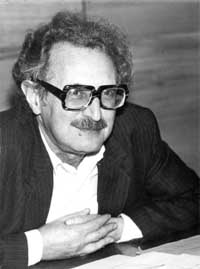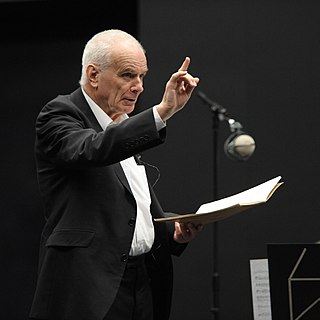A Quote by M. Night Shyamalan
Basically, when I'm writing something, I think about what is the subject of the piece. The subject of the piece is our fear of getting old, which is a variation on our fear of dying.
Related Quotes
There is no hate without fear. Hate is crystallized fear, fear's dividend, fear objectivized. We hate what we fear and so where hate is, fear is lurking. Thus we hate what threatens our person, our liberty, our privacy, our income, our popularity, our vanity and our dreams and plans for ourselves. If we can isolate this element in what we hate we may be able to cease from hating... Hate is the consequence of fear; we fear something before we hate; a child who fears noises becomes the man who hates them.
I am constantly trying to communicate something incommunicable, to explain something inexplicable, to tell about something I only feel in my bones and which can only be experienced in those bones. Basically it is nothing other than this fear we have so often talked about, but fear spread to everything, fear of the greatest as of the smallest, fear, paralyzing fear of pronouncing a word, although this fear may not only be fear but also a longing for something greater than all that is fearful.
After 10 years, I have been touring for 20, playing basically the same type of music, a four-piece or three-piece type of music with loud, crashing drums and screaming vocals. It gets to the point where you're looking for something new, and you don't want to do something that's way too left-field, for fear that it might seem contrived.
Do I fear death? No, I am not afraid of being dead because there's nothing to be afraid of, I won't know it. I fear dying, of dying I feel a sense of waste about it and I fear a sordid death, where I am incapacitated or imbecilic at the end which isn't something to be afraid of, it's something to be terrified of.
Fears to look bad in front of other people, to say something wrong, to be laughed at - all those fears deprive us of half of our abilities. This is one of the main school problems. That teacher understands it, who can teach students to study without fear of the teacher, without fear of classmates, and, the most important, without fear of a subject.
It is alleged by men of loose principles, or defective views of the subject, that religion and morality are not necessary or important qualifications for political stations. But the Scriptures teach a different doctrine. They direct that rulers should be men who rule in the fear of God, able men, such as fear God, men of truth, hating covetousness. But if we had no divine instruction on the subject, our own interest would demand of us a strict observance of the principle of these injunctions. . . .
Fear keeps us rooted in the past. Fear of the unknown, fear of abandonment, fear of rejection, fear of not having enough, fear of not being enough, fear of the future-all these fears and more keep us trapped, repeating the same old patterns and making the same choices over and over again. Fear prevents us from moving outside the comfort-or even the familiar discomfort-of what we know. It's nearly impossible to achieve our highest vision for our lives as long as we are being guided by our fears.
Foresight is good when it is subject to the latter, but it becomes excessive when we are in a hurry to avoid something we fear. We rely more on our own efforts than on those of his Providence, and we think we are doing a great deal by anticipating His orders by our own disorder, which causes us to rely on human prudence rather than on his Word.
Anger is a response that can lead to harm if we don't evaluate what we are upset about. Ask yourself what you are afraid of, as anger is almost always fear in disguise. If we think something or someone threatens us, we feel fear-fear that we are inadequate, that our lives are out of control, that things won't go our way. Then we fight. Find out what you're upset about. We rarely are upset for the reason we think.
We are turning into a nation of whimpering slaves to Fear—fear of war, fear of poverty, fear of random terrorism, fear of getting down-sized or fired because of the plunging economy, fear of getting evicted for bad debts or suddenly getting locked up in a military detention camp on vague charges of being a Terrorist sympathizer.
We're all assigned a piece of the garden, a corner of the universe that is ours to transform. Our corner of the universe is our own life - our relationships, our homes, our work, our current circumstances -. exactly as they are. Every situation we find ourselves in is an opportunity, perfectly planned by the Holy Spirit, to teach love instead of fear.






































